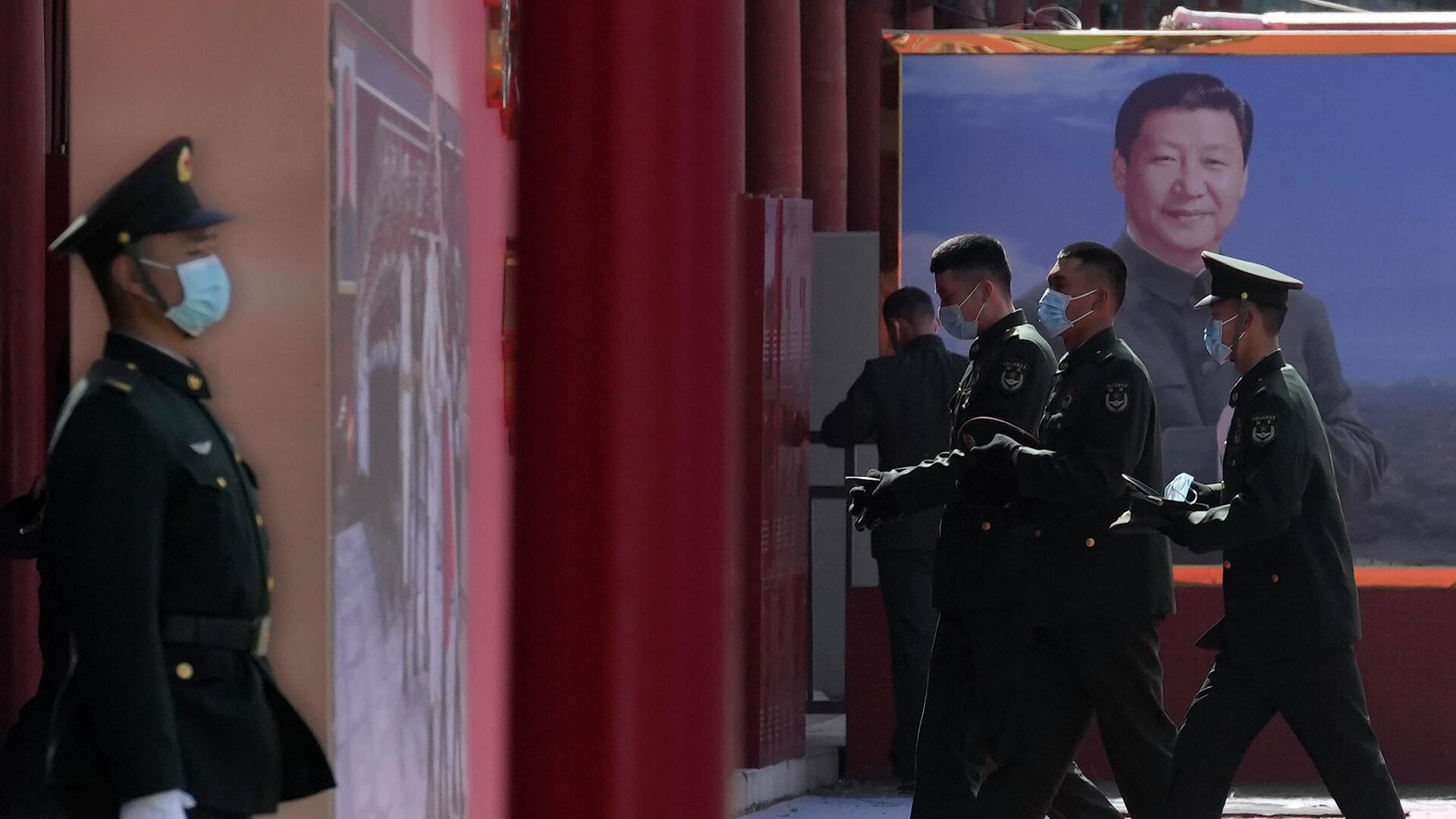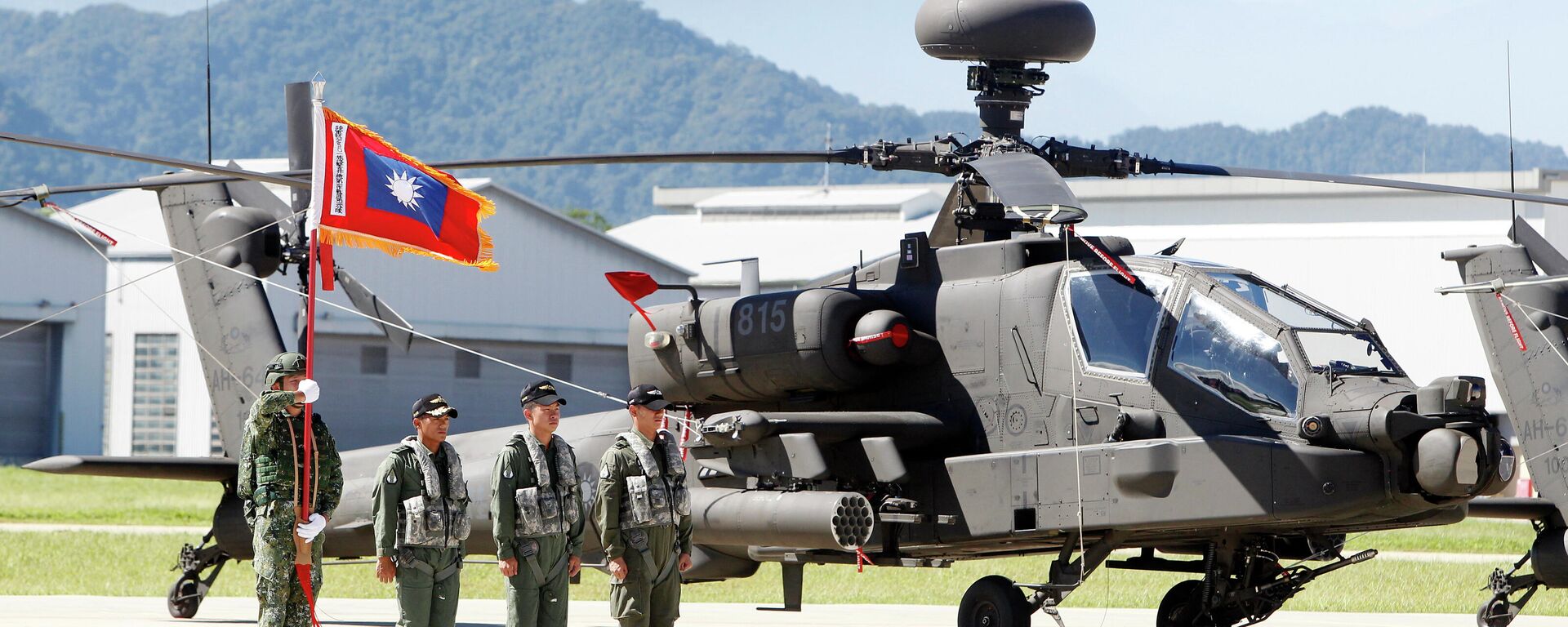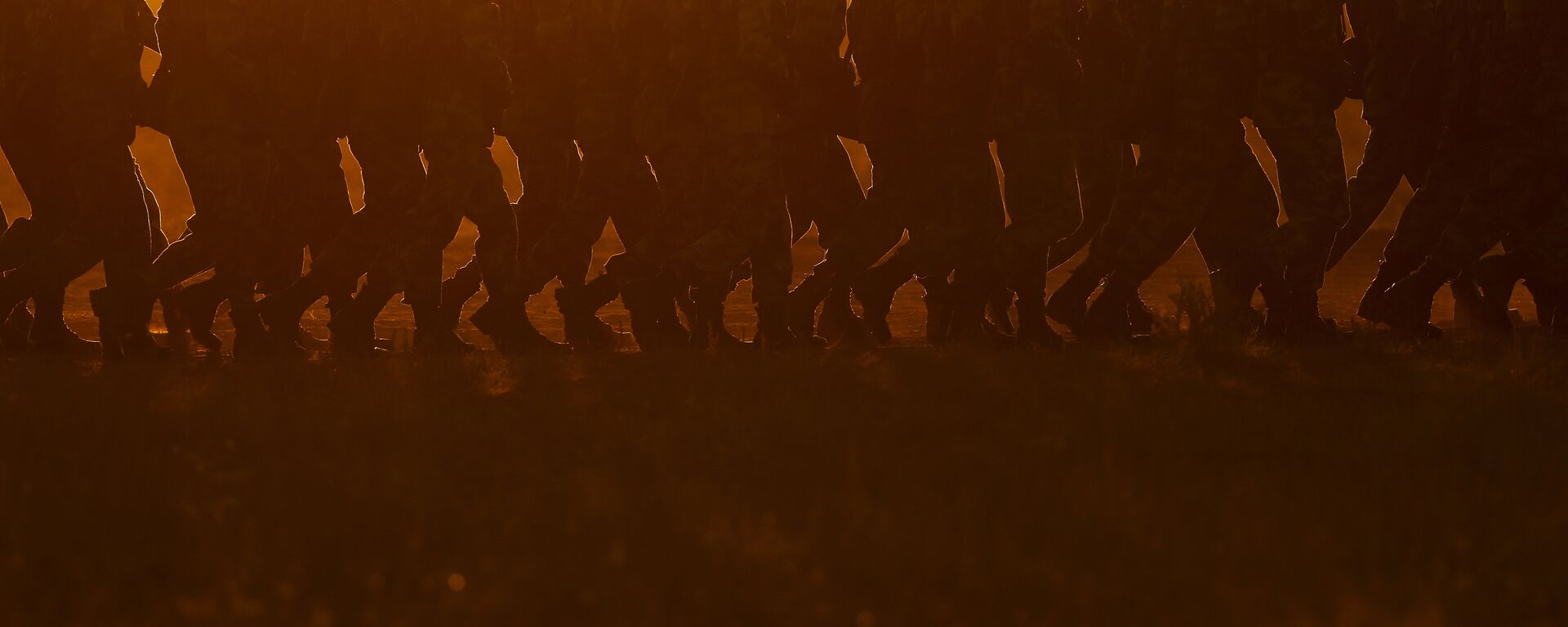China Reportedly Applying 'Interesting Lessons' From Russia's Special Op in Ukraine to Taiwan Issue
21:35 GMT 10.05.2022 (Updated: 20:58 GMT 19.10.2022)

© AP Photo / Ng Han Guan
Subscribe
The US claims to be committed to Taiwan's defense despite its refusal to recognize the island as independent from China's mainland. However, lessons learned from the current Ukraine crisis and the US support for Kiev have allegedly provided significant takeaways for how Washington may engage Taipei in case of conflict with China.
Top US intelligence officials asserted that Chinese President Xi Jinping is closely monitoring Russia's special military operation in Ukraine and the international response as Beijing evaluates the risks of claiming Taiwan, the Hill reported on Tuesday upon the intel briefing before congressmen.
According to the report, the director of the Defense Intelligence Agency Lt. Gen. Scott Berrier told the Senate Armed Services Committee that Beijing was "going to watch this very, very carefully."
"It’s going to take some time for them to sort out all elements of — diplomatic, information, military, economic — that have occurred with this crisis," he noted.
Berrier made his remarks at a hearing on the intelligence community's assessment of global dangers. The achievements and failures of US intelligence in assessing Russia's capability in Ukraine, as well as how they relate to the risks facing Taiwan, were the predominant focus of the lawmakers, according to the report.
"We pretty dramatically overestimated the strength of the Russian military. I’d be surprised, for one, if China’s military strength proves to be so attenuated,” Republican Sen. Josh Hawley of Missouri said at the hearing. “Don’t you think we’re dealing with a significantly more formidable adversary with China?”
However, Beijing would rather subsume Taiwan through diplomatic and economic pressure, according to Berrier and Director of National Intelligence Avril Haines, who also spoke at the session, but the potential of a military takeover between now and 2030 remains high.
“It’s our view that they are working hard to effectively put themselves in a position in which their military is capable of taking Taiwan over our intervention,” Haines said. "They would prefer not to use military force to take Taiwan. They’d prefer to use other means."
"There are some things we can do with Taiwan. I think they’re learning some very interesting lessons from the Ukrainian conflict," Berrier said, praising "effective training with the right weapons systems."
Despite this, Berrier believes Taiwan's military is not "where it should be," citing a big conscript army with a short enlistment period as an example.
“I think we have to engage with our [Indo-Pacific Command] partners within the Department of Defense, the Taiwan military and leadership to help them understand what this conflict has been about, what lessons they can learn and where they should be focusing their dollars on defense and their training,” he said.
Nevertheless, the officials believe that Beijing is unlikely to move forward with plans to annex Taiwan. According to Berrier, China is "thinking about future operations probably against Taiwan and how difficult that might be."
"They’re probably also thinking about the scrutiny they would come under should they entertain thoughts or operations like that,” he claimed.
The official stressed then that one of the lessons he hopes the Chinese learn from Russia's special military operation in Ukraine is "just how difficult a cross-strait invasion might be and how dangerous and high risk that might be."
However, both Berrier and Haines also came under fire for the US intelligence community's failures in assessing Beijing's intentions, which followed an overestimation of the strength and the will of Afghan military forces to resist the Taliban* last year.
The majority of US lawmakers reportedly support aiding Taiwan in a possible confrontation with China. According to intelligence officials, China is an unequalled priority for the intelligence community and a huge security threat for the US, with its developing nuclear arsenal being described as "historic."
The government in Taipei is seen as a critical US regional ally against the expansion of China's influence in the region. Beijing, on the other hand, sees Taiwan as part of its sovereign territory and the Taipei authorities as a rogue player, hoping to eventually gain control of the island.
Russia launched a military operation in Ukraine on February 24 after the breakaway Donbass republics pleaded for help against intensifying attacks by the Ukrainian military. According to the Kremlin, the aim of the operation is the "demilitarization and denazification of Ukraine."
The Russian military is targeting only Kiev's military infrastructure and Ukrainian troops and, as of March 25, they have completed the main tasks of the first stage, significantly reducing the combat potential of Ukraine, per the Defense Ministry. Moscow's main military objective was said to be the liberation of Donbass.
*The Taliban is under UN sanctions over terrorist activities.



